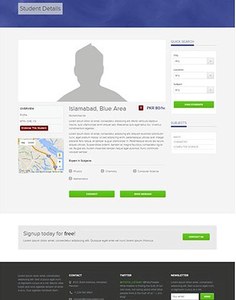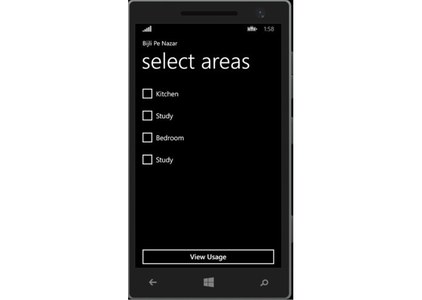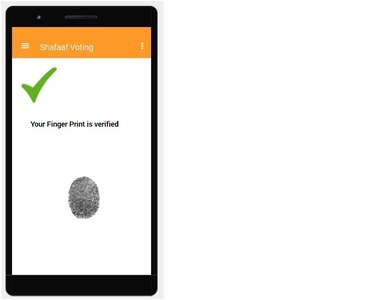Tech geeks reveal innovative apps at Islamabad Hackathon

Applying for university can sometimes be a nightmare with unending paper work and long waits in queues for appointments at the admissions office.
Now picture doing all of this with just one click. Yes, it is unimaginable but possible — at least a group of young software professionals presented at a recent two-day Hackathon think so. The event was an opportunity for techies to provide solutions for social and civic issues prevalent in Pakistan.
Organised by Code for Pakistan (CfP) and OPEN Islamabad, the Hackathon featuring like-minded, young, software professionals who presented an app prototype. Once the apps are fully developed, users will be able to use them to resolve issues faced by citizens.
Read: Code for Pakistan brings technology geeks to solve civic and social issues
Prevalent issues in the apps include education, health, sustainability, poverty and development. Six teams devised a solution through the apps around the problem they had picked. At the end of the event, each team was ranked based on their prototype, out of which three secured the third position and one team qualified as the audience favourite.
Dastawezat
Owing to poorly organised online application portals, students in Pakistan find university admissions an exceedingly straining procedure.

Dastawezat, the first position holder in the Hackathon, created a prototype for an app that enables the process of applying to universities for admissions in Pakistan to be at your fingertips.
Out of 179 Higher Education Commission (HEC) recognised universities in Pakistan, only 43 have an online application system.
The app contains every Pakistani university in its database, which requires applicants to fill an online form as opposed to the lengthy process of applying through online admission portals. It will also relieve them from the hassle of standing in long queues at banks for payment and form submissions at universities.
In terms of convenience, the app will ease travel, boarding and lodging expenses that students would otherwise incur if they were to travel across cities to apply for admission.
Explore: Is this Pakistani entrepreneur's startup going to dethrone Instagram?
Initial development of the app was completed by creating an administrative panel to merge databases of various universities.
By September 2016, Dastawezat aims to cater to 37 major universities.
In the long run, experts who have designed this app aim to cover all 179 HEC recognised universities in Pakistan under Dastawezat.

Chota Ustaad
Chota Ustaad is a prototype for an app in progress. It is created to help students who require extra help past school hours. This app enables teaching at peer-to-peer level, which relieves the burden of costly tuition fee.
Software experts behind Chota Ustaad aim to establish a web and mobile based platform where students can sign up to connect, interact and seek help from senior and excelling students.

Designed to help communicate, the app provides video interactions, instant text messaging, community discussions, knowledge sharing, and location-based searches to arrange in-person meetings for interactive learning sessions.
To ensure a student’s security, the app contains privacy measures, peer reviews and ratings, and verification methods.
The platform will function based on reputation building and student profiling.
Once the app is functional, students will be able to access provide paid lessons in exchange for subscriptions.
Explore: How the Internet can kickstart a new era of progress in Pakistan
For extended functionality, the app will enable students to purchase packages in order to waive usage restrictions.
At last week’s Hackathon, Chota Ustaad was ranked second among five other teams.
Bagh Bagh
Among one of the three teams to secure the third place, Bagh Bagh, a plant sharing app is in its developmental phase.
In an attempt to address environmental degradation, this app seeks to restore vegetation by establishing communities that will engage in gardening activities together.

The app has three different functions: Plant Share, Information Share, and Space Share.
Plant Share: Users will be required to install the app and create an account. Through the app, users can interact to exchange and share plant clippings and seeds. Each user will be able to post pictures of plants they intend to clip. Other users can obtain those clippings either for free or in exchange for another plant.
Information Share: Information through the app will be shared in a database of gardeners. This circle will be expanded by adding new and potential gardeners.
Space Share: Events can be set up, through the app, to invite people and organisations to view their gardens.
Bagh Bagh will also connect relevant groups involved in plantations.
Bijli Pe Nazar
Not having ‘bijli’ is a problem so widespread in Pakistan that in some frustrating moments it feels like a miracle that there is any power at all. As though this was not enough, paying exorbitant rates for its consumption is also an accepted norm.

Currently in its developmental stages, the app Bijli Pe Nazar is designed to help users monitor electricity usage as per consumption and distribution on devices. The system currently operates through consumers receiving electricity bills and units consumed are a collective figure. With this app, consumers will be able to monitor their consumption in real-time. It will also provide a user history on every device and portion of the house where this app is installed.
Appliances on standby potentially amount to 10 percent of total electrical usage in an average household. Phantom load occurs in devices such as television, refrigerator, chargers and kitchen appliances when they are not in use.
Through this method, consumers will know the exact amount they incur on each device. This will align power consumption and make consumers more cautious, whereby reducing electricity usage by 10pc to 20pc on average.
The app is developed by current transformer (CT) sensors, which send data over a cloud server using WiFi. From the server, data is analysed through a user-friendly interface and data-mining technology.
Participants working on Bijli intend to design apps for popular mobile operating systems such as Android, Windows Phone and Apple iOs.
At the Hackathon held in Islamabad, Bijli was one of the three teams that secured the third position.

Shafaaf Voting
Shafaaf Voting, third place at Islamabad’s Hackathon, might just be what Pakistan needs to elect a democratic government.
A team of young, skilled IT experts are currently working on this app. They are invited to pitch it at the local invest-2 Innovate Slush Event 2016 in Islamabad.

The turnout in the general elections of 2013 was 55 percent. This amounts to almost half of the population who did not cast their votes.
The app aims to increase the amount of people voting. By registering on this app, overseas Pakistanis will be able to vote through their mobile phones. For purposes of verification, the app has a two-step authentication system using the SIM card and fingerprints.
Shafaaf Voting, as the name suggests, is not only going to relieve voters from lining up in queues but also ensures transparency.
No Food Wasted
As one of the leading problems in the country, audience at last week’s Islamabad Hackathon chose ‘No Food Wasted’ as their preferred team.
Food waste is an emitter of greenhouse gases. A yearly estimate of 3.3 billion tons of carbon dioxide is released into the atmosphere.

To curtail a prevalent problem such as this, software experts at the Islamabad Hackathon launched a prototype that establishes a link between restaurants and people who have excess food. The app will make food available to entities such as charities and neighbourhoods to feed the needy.
This will reduce the amount of food wasted and ultimately cater to the underprivileged.
‘No Food Wasted’ prototype will be converted into a functional app where users will be able to register themselves and become part of the chain of communication in order to make a donation.
The app will be able to distinguish between donors and takers. Using an address, the app aims to make a meal available to everyone regardless of their location and socio-economic standing.

The author is a freelance journalist who writes about social issues. She tweets at @_shairani.



